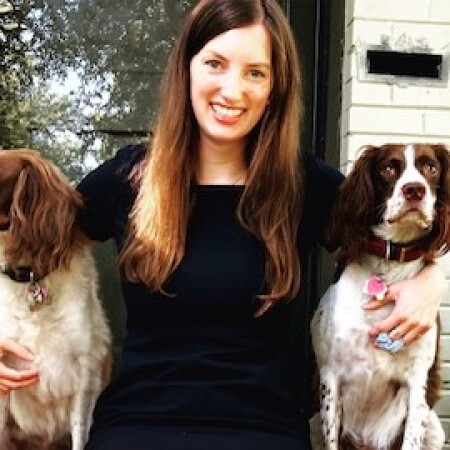Ph.D. - Economics
Cornell University - 2021

Professional Preparation
M.A. - Economics
Cornell University - 2018
Cornell University - 2018
B.A. - Economics and Government
Colby College - 2012
Colby College - 2012
Research Areas
Health economics
Public economics
Economics of crime
Awards
Policy Analysis and Management Outstanding Teaching Assistant Award - Cornell University [2020]
CTECH Dissertation Award - Center for Transportation, Environment, and Community Health [2019]
Honorable Mention, National Science Foundation Graduate Research Fellowship - National Science Foundation [2015]
Phi Beta Kappa - Colby College [2012]
Bixler Scholar - Colby College [2012]
Breckinridge Prize - Colby College [2012]
Christian A. Johnson Award - Colby College [2012]
James J. Harris Business Administration Award - Colby College [2012]
Faculty Prize - Colby College [2011]
Pi Sigma Alpha - Colby College [2011]
Appointments
Assistant Professor of Economics
The University of Texas at Dallas [2021–Present]
The University of Texas at Dallas [2021–Present]
Teaching Assistant
Cornell University [2016–2021]
Cornell University [2016–2021]
Research Assistant
Cornell University [2016–2020]
Cornell University [2016–2020]
Senior Research Assistant
Federal Reserve Board of Governors [2013–2015]
Federal Reserve Board of Governors [2013–2015]
Research Assistant
Federal Reserve Board of Governors [2012–2013]
Federal Reserve Board of Governors [2012–2013]
Projects
The Impact of Smoking Bans in Bars and Restaurants on Alcohol Consumption and Smoking
Governments implemented bar and restaurant smoking bans to target smoking-related externalities, but these bans may also affect drinking. This paper studies smoking bans’ effects on alcohol consumption and smoking behavior. I estimate a difference-in-differences model that exploits spatial and temporal variation in smoking bans. Bans result in a 1-drink-per-month (5%) increase in intensive-margin alcohol consumption, driven by changes in bar and restaurant consumption. I find no economically meaningful effects on extensive-margin smoking. These results imply that smoking bans lead to unintended consequences in the form of increased alcohol consumption.Ban the Box and Cross-Border Spillovers
Ban-the-Box (BTB) policies intend to help ex-offenders find employment by delaying when employers can ask about criminal records. Existing evidence finds BTB causes discrimination against young, non-college-educated minority men. We show that effects for this group are not robust to a simple change in specification and the coding of BTB laws. Using a distinct treatment definition, we find no evidence of statistical discrimination: employment effects are near zero, precisely estimated, and not statistically significant. Our confidence intervals exclude the negative effects from a prominent prior study. We also test for spillovers to neighboring jurisdictions and find precisely estimated null effects.Negative Externalities of Temporary Reductions in Cognition: Evidence from Particulate Matter Pollution and Fatal Car Crashes
There is mounting causal evidence that particulate matter pollution reduces real-time cognitive function and increases aggressive behavior. We investigate a setting in which both of these functions matter greatly: driving. Using exogenous variation in wind speed and direction, we show that higher PM 2.5 exposure results in more fatal car crashes and fatalities. Further, it is only exposure within the preceding 24 hours that increases accidents and fatalities, highlighting the immediate negative effects of high-pollution days. Reducing fine particulate matter pollution by one standard deviation across the board would have averted 1,700 motor vehicle fatalities in 2019.Do Uber and Lyft Reduce Drunk-Driving Fatalities?
This paper investigates whether Uber and Lyft lead to reductions in drunk driving, as measured by city-level drunk-driver-related motor vehicle fatalities and fatal crashes. I use a difference-in-differences method that exploits the variation in the timing of Uber and Lyft entry for the 100 most populous U.S. cities and a Poisson model to account for the fact that crashes and fatalities are count data. Using monthly city-level Fatality Analysis Reporting System (FARS) data for 2006 to 2016, I find small declines in drunk-driver-related fatal motor vehicle incidents and small increases in overall fatal motor vehicle incidents, but I cannot reject the null hypothesis of no effect of Uber or Lyft on these outcomes. Event studies suggest that drunk-driver-related and overall fatal motor vehicle incidents decline several years after the entry of Uber or Lyft into a city.Presentations
Baylor University
2023/09American Society of Health Economists Annual Conference
2023/06The University of Alabama at Birmingham
2023/03University of Texas Rio Grande Valley
2023/02Eastern Economic Association
2022/05Additional Information
Referee
American Law and Economics Review, Economic Inquiry, Economics and Human Biology, Feminist Economics, Harm Reduction Journal, Health Economics, International Review of Law and Economics, Journal of African Economies, Journal of Health Economics, Journal of Human Resources, Journal of Policy Analysis and Management, Review of Economics and Statistics, Social Science and MedicineTeaching
Graduate Public Economics- Fall 2023
- Spring 2022
- Fall 2023
- Spring 2023
- Fall 2022
- Spring 2023
- Fall 2021